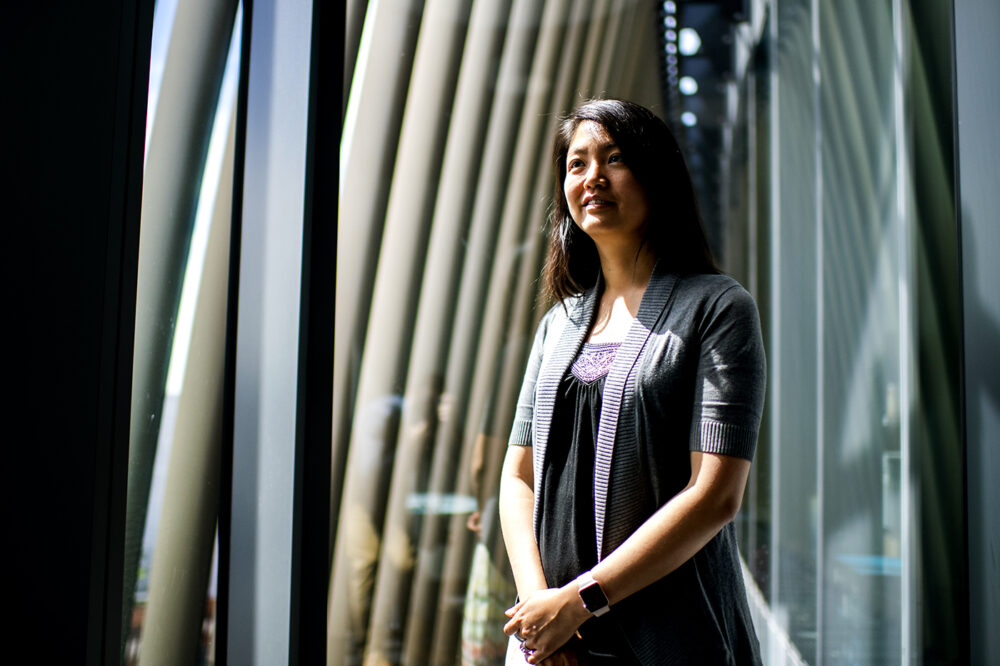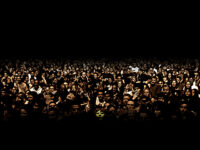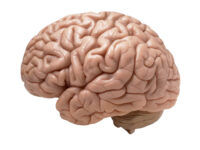“How much do we have to pay you to lighten it up?” a nurse asked Psyche Loui, who was flooding a nursing home cafeteria with the dark tones of a Beethoven sonata. Loui had been volunteering at the nursing home after her high school classes and only moments before discovered they had a piano. Challenged to switch to a more uplifting piece, Loui sought inspiration from the inside of the piano bench, where she found music books of folk tunes. She propped the books up against the piano. As her eyes darted through the pages in front of her, her fingers quickly followed, skipping from key to key in a friendly rhythm. The nursing home residents in the room, who were normally unresponsive due to conditions like late-stage dementia, suddenly came alive with song. Lyrics and harmonies poured out of them as Loui played. Her music was transformative, triggering a switch from unawareness to alertness. Though she did not know it at the time, this moment would help motivate her career, remaining close to her heart even today.
From student to maestro
Loui has always played music, enjoying piano and violin growing up. She also enjoyed her science classes and considered applying to medical school. However, she realized research could make an even bigger difference and explored its possibilities through her undergraduate neuroscience courses. While working on literature review assignments, Loui discovered the emerging field of music cognition, which merged her interests in music and neuroscience. Cognitive neuroscience particularly drew Loui as it allowed her to ask questions about seemingly subjective or abstract concepts with rigorous scientific tools. As she took music theory courses alongside her neuroscience courses, she began finding fascinating connections. For example, she would read papers about using chord progressions to define brain processing of musical syntax.
Her growing interest in this intersection led her to complete a PhD in psychology with a specialization in cognition, brain, and behavior at the University of California at Berkeley. She then expanded her academic work at the Beth Israel Deaconess Medical Center, Harvard Medical School, and Wesleyan University. Currently, she is an associate professor of creativity and creative practice in the Department of Music at the College of Arts, Media and Design. She is also the director of the Music, Imaging, and Neural Dynamics Laboratory (MIND Lab) at Northeastern University. On top of her academic endeavors, Loui has remained a musician, playing in the Duke Symphony Orchestra throughout her undergraduate education and in the Longwood Symphony Orchestra since 2007.
Her day-to-day schedule varies, but it remains a blend of family, music, and academia. Loui teaches a CAMD course twice a week, which covers an introduction to research for PhD students in arts, media, and design. Days she does not teach are filled with meetings, writing, and data analysis. After work, she regularly practices violin with her daughter after dinner. About twice a week, Loui goes to evening rehearsals for the Longwood Symphony Orchestra. Occasionally, she also enjoys Boston’s bluegrass music on Tuesdays, which is a genre she has recently found interesting. On the weekends, Loui often spends time with her family and plays in a band. Since her undergraduate beginnings, Loui has maintained her roles as a musician and scientist throughout her daily life, which she now balances with parenthood.
Fusing genres
Loui’s seemingly separate roles as a researcher and musician have only grown more harmonious as her career has progressed. As an undergraduate, she would be found either in her dorm, in a practice room, or in a lab. Her neuroscience and music theory courses were tightly linked to her experiential work. This linkage equipped her to write her undergraduate thesis, which involved recording electroencephalography (EEG) while participants listened to Neapolitan sixth chords and analyzing EEG into event-related potentials (ERPs). Now, the individuals she meets from playing or discussing music often become collaborators, consultants, or co-advisors on her students’ projects. One of the first people she met through the Longwood Symphony Orchestra was Dr. Lisa Wong, a pediatrician, violinist, and violist who also teaches a class related to music and health at Harvard University, for which Loui guest lectures annually. This connection has allowed students interested in this intersection to pursue their thesis in Loui’s lab and be advised by both Loui and Dr. Wong.
From meeting musician-professors to musician-doctor-parents to other combinations of shared life experiences and passions, the meaningfulness of such connections is clear. “There’s something about playing music together or having played music together that just feels very personal — so socially bonded,” Loui said.
Loui and her colleagues take the stance that music co-evolved with society as a product of genes and culture in a way that subserves social bonding. This is in contrast to the ideas of those like Steven Pinker, who famously stated there is no evolutionary reason for music, and deemed it “auditory cheesecake” that is enjoyable but not necessary. Broadly, Loui explains that we have music because its features, such as pitch, harmony, or rhythm, encourage social bonding, learning, and forming predictions. These predictions help establish the dopaminergic reward system to learn more and seek out new experiences, particularly social experiences such as sounds.
The reason we have music is that “musical sounds set up predictions and rewards in ways that also direct attention across people,” Loui said. Considering this role of music as being integral to society, Loui has explored many different topics in perception, underlying neural systems, and the translational capacity of music.
Lyrical moments for the compositions ahead
Given her broadly-ranging accomplishments in ever-expanding topics, I wondered what Loui would describe as her highest or proudest career points, especially in capturing her enduring personal connections to her work. During our discussion, she recounted the external validation of getting her first paper accepted by a journal as a postdoctoral researcher, which was reassuring amid the constant pressure to be working on new grants and papers. Loui quickly knitted her eyebrows in thought as she spoke, sharing that such acceptances were not as motivating as times when unique concepts fell into place. “I think the moments that really inspired me were when I had a new idea,” she resolved with a nod. For her PhD dissertation, Loui formed the idea of using musical structure as an artificial language, which has become part of her current work revolving around a new musical system that can help researchers understand the brain. Knowing she discovered a tangible, innovative, and potentially impactful line of research was truly encouraging for her continued work.
Loui’s intrinsic motivations for discovery are undoubtedly inspired by her encounters with music and people. High-school-aged Psyche did not know the individual nursing home residents who sang along to her piano playing, yet much of her current work as a researcher includes finding brain mechanisms underlying switches in alertness, especially in how they relate to music-based interventions. “I didn’t realize how formative or how precious of a moment that was,” she added after having described this meaningful experience. Loui is now collaborating with Edward Large, a theoretical neuroscientist at the University of Connecticut, to develop new interventions for Alzheimer’s disease by combining theoretical models of rhythmic predictions with brain imaging in patients to test these models.
Looking ahead, Loui’s lab has become interested in multiple areas related to systems and cultures. One of these topics is the ability of music to help those who experience early life adversity. In collaboration with Laurel Gabard-Durnam, an assistant professor in Northeastern’s psychology department, Loui is tackling questions including: “How can music be used as a way to probe how early life adversity affects the brain? If someone’s childhood was uncertain, do they hold on to certain pieces of music like a security blanket? If someone experienced uncertainty or trauma in adolescence, do they not form the pleasant associations with music from that period of life that most people tend to find pleasurable?”
Loui also aims to ascertain cross-culturally appropriate ways to understand music in order to address the field being largely Western-centric. By creating a new musical system, part of her goal is to “ask questions that are relatively culture-free,” she said. She shared a finding from recent research, in collaboration with Elizabeth Margulis from Princeton University, on the phenomenon of imagination while listening to a piece of music. It was found that music with a twangy banjo sound conjured images of cowboys for people in Western societies, whereas a group of people from China who were not familiar with cowboys reported it made them imagine mountains. “Can we take music that is from neither culture and see how they can be used to inspire imagination and creativity?” Loui posed. She also wants to lower the interdisciplinary barriers of entry in music research so the musical experiences being investigated do not depend on an expensive music education or access to certain opportunities. Loui, Margulis, and Deirdre Loughridge, an associate professor in Northeastern’s music department, are publishing “The Science-Music Borderlands” with MIT Press in the spring of 2023. The edited volume will tackle the disciplinary boundaries between humanities and sciences in music research.
Overall, Loui would like to create a form of music research that “addresses systemic differences or systemic inequalities, either across cultures or even within a single culture,” she said. Loui has powerful visions for the future of her lab, hoping to “think through more socially-just ways to conceptualize research.”
Image courtesy of the Northeastern University College of Arts, Media, and Design (CAMD)





